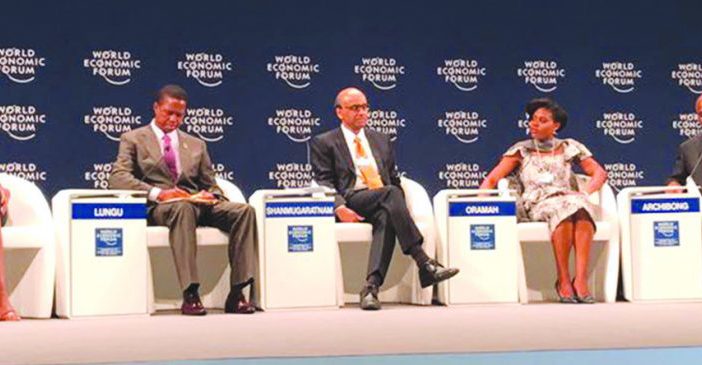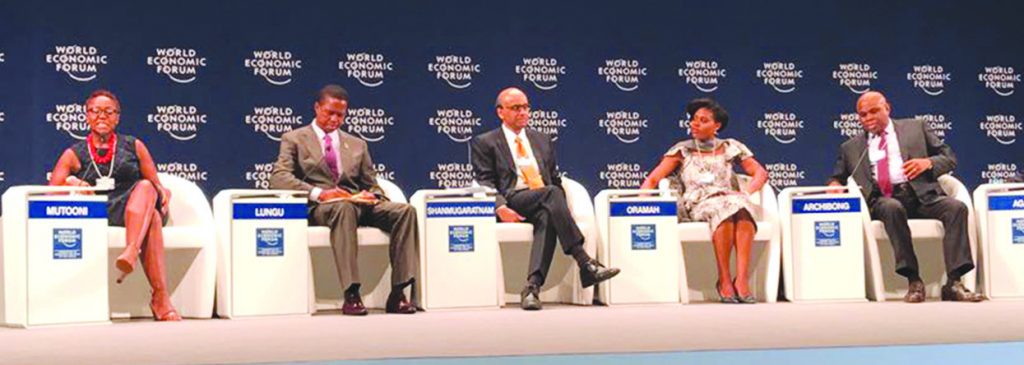Southern Times Africa
By Magreth Nunuhe
WINDHOEK – Mauritius, South Africa, Rwanda, Botswana, Morocco, Namibia, Algeria, Tunisia, Kenya and Cote d’Ivoire are the 10 most competitive economies in Africa, according to the Africa Competitiveness Report 2017.
In all of Sub-Saharan Africa, Mauritius leads the pack as the topmost efficient country, while on the global scale it ranks as the 45th most attractive country in which to do business, having dropped from its 39th spot from last year.
Mauritius is followed by South Africa, whose global ranking has substantially improved from 56 to 47, while Rwanda has also upgraded from position 62 to 52. Botswana is up from 74th spot to 64 with Morocco at 70, while Namibia has only slightly improved from 88th place to 84.
Tunisia is at 95, Kenya (96) and Côte d’Ivoire (99). The May 2017 report was published by the African Development Bank (AfDB), World Economic Forum and World Bank.
It assesses competitiveness landscape of economies, providing insight into the drivers of their productivity and prosperity, while also assessing national competitiveness worldwide and providing a platform for dialogue between stakeholders.
Mauritius continues to outperform its continental peers because “its leaders have removed the hurdles that prevent so many other countries from achieving prosperity; in this case, streamlining its goods market, building solid infrastructure and promoting a healthy workforce”.
South Africa and Rwanda have also improved their global ranking since the last index was released in 2015, with their continued growth being attributed to the uptake of technology, efficient financial markets and a focus on strengthening institutions. The report indicates that creating jobs can lead to Africa’s economic revival that may sweep the continent to prosperity. But in general, countries that have put in place sound fiscal and monetary policies, by keeping inflation, debt, and current accounts in check, have tended to see improvements in their macroeconomic environment, counterbalancing the negative effects of shrinking revenues.
“This is an aspect where many African countries have improved significantly, having better control of inflation and government accounts compared to 20 years ago, and in some cases achieving a performance in line with advanced economies,” reads the report.
Countries like Gabon were hailed in the report for maintaining a low inflation rate, relatively high national savings, and a contained budget deficit, while Botswana, although impacted by shrinking mineral exports, has done well in ranking globally, thanks to good management of its resource fund, low public debt and inflation, and high national savings.
Together with Mauritius, Gabon and Botswana are said to have developed the soundest macroeconomic environments in Africa.
Mauritius is the only African country in transition from an efficiency driven economy to an innovation driven one, in the league of advanced economies, like Germany, Korea, Norway, Spain, the United Kingdom and the United States.
The innovation-driven economies are characterised by the ability of a country to sustain higher wages and an associated level of productivity only if their businesses are able to compete with new and unique products using sophisticated management methods.
African countries in the efficiency driven stage of development are Namibia, South Africa, Cape Verde, Egypt, Morocco and Tunisia, whose economies are categorised by more efficient production and increased product quality, higher education and training, developed financial markets and the ability to make use of latest technological developments.
The above African countries are on par with countries such as Peru, Jordan, Indonesia, Albania, Belize, China and Colombia in terms of their stage of economic development.
The majority of African countries remain in the first stage of development – the factor-driven stage, where they are required to prioritise in building sound institutions and providing macro-economic policies, adequate infrastructure and ensuring a healthy and educated workforce.
According to the report, Africa has shown a five percent improvement, but compared to 10 years ago, Africa’s gap has started to widen with the world’s most advanced economies this year.
On a positive note, the quality of seaports and roads in some African countries, like Namibia and South Africa, perform relatively well, with the quality in line with average levels in advanced economies.
Africa has made significant progress on a number of crucial competitiveness dimensions over the past decade, such as on health and literacy, child mortality sharply declining from 83 to 47 percent, and primary school enrollment having grown to above 80 percent, according to the report.
East Africa is reported to be the sub-region that has managed to improve its competitiveness performance the most, gaining 8 percent in score since 2007, followed by Southern Africa, which has gained 6 percent.
West Africa and North Africa, after a short period of improvement, the competitive index note they are today at the same level of competitiveness they used to be 10 years ago.








